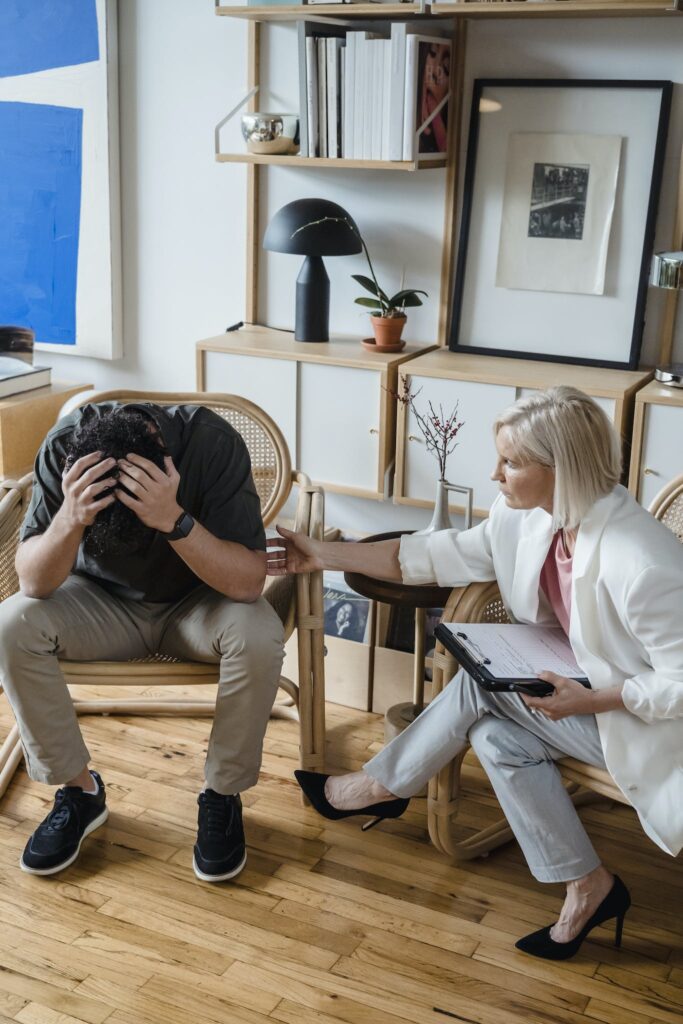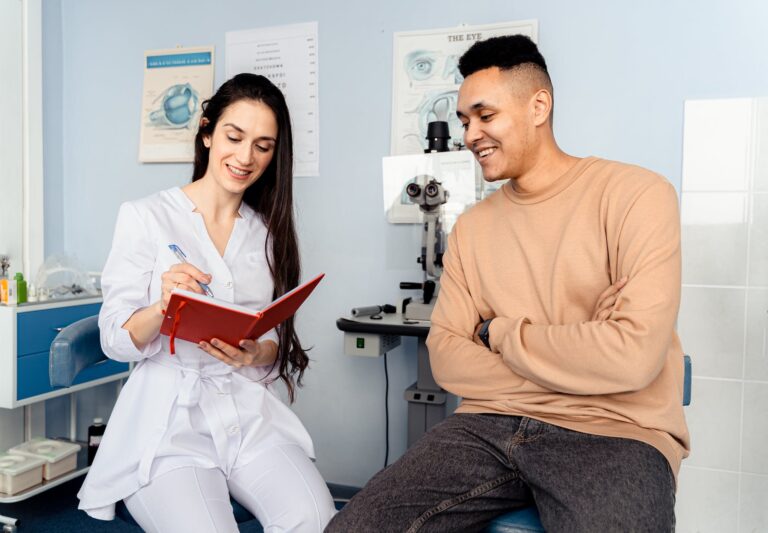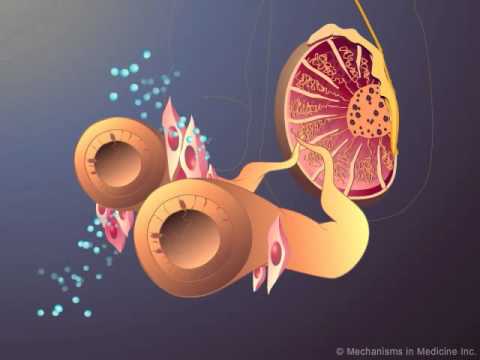Navigating Intimacy: Tips for Couples Coping with Erectile Dysfunction

Understanding Erectile Dysfunction and its Impact on Intimacy

Erectile dysfunction (ED) is a condition that impacts a significant number of men, causing difficulties in maintaining or achieving an erection suitable for sexual activity. While it is common for men to experience occasional difficulties in this area, persistent issues may indicate the presence of ED. Understanding the impact ED can have on intimacy is crucial in order to address it effectively and maintain a healthy, satisfying relationship.
Not only does ED affect a man’s physical ability to engage in sexual activity, but it can also have emotional and psychological implications for both partners. Feelings of frustration, disappointment, and even insecurity can arise as a result of ED, leading to decreases in self-esteem and relationship satisfaction. Furthermore, studies have shown that ED can significantly impact overall relationship quality, leading to increased levels of distress and strained communication between partners. It is important to address these issues openly and honestly to provide the best possible support and understanding for couples dealing with the impact of ED on intimacy.
Common Causes of Erectile Dysfunction
Erectile dysfunction (ED), also known as impotence, is a condition that affects a significant number of men worldwide. While the exact prevalence of ED may vary depending on the population being studied, it is estimated that up to 52% of men experience some degree of erectile difficulties at some point in their lives.
There are various causes of erectile dysfunction, which can be both physical and psychological in nature. Physical causes may include medical conditions such as diabetes, high blood pressure, heart disease, obesity, and hormonal imbalances. Additionally, certain medications, smoking, excessive alcohol consumption, and substance abuse can also contribute to the development of erectile dysfunction.
On the other hand, psychological factors can significantly impact a man’s ability to achieve or maintain an erection. Stress, anxiety, depression, relationship issues, and performance anxiety are some common psychological causes of ED. It is essential to understand that erectile dysfunction can be a complex interplay between physical and psychological factors, and often multiple factors may contribute to the development of this condition. Seeking professional help and support is crucial in determining the underlying cause and appropriate treatment options for individuals experiencing erectile dysfunction.
Seeking Professional Help and Support

When faced with the challenges of erectile dysfunction, seeking professional help and support can be a crucial step towards finding effective solutions and improving intimacy. Consulting a healthcare professional, such as a urologist or a specialized sex therapist, can provide individuals and their partners with valuable insights and guidance on addressing this issue.
These experts have the knowledge and expertise to determine the underlying causes of erectile dysfunction and recommend appropriate treatment options. They can conduct thorough evaluations, which may involve medical history assessments, physical examinations, and possibly laboratory tests, to identify any contributing factors. With this extensive evaluation, healthcare professionals can better understand the specific needs of each individual and tailor treatment plans accordingly. They can provide valuable information about the latest medical interventions, such as oral medications, injections, or even surgical options, and discuss potential risks and benefits. Additionally, they can offer psychological or behavioral interventions, such as cognitive-behavioral therapy, to address any emotional or psychological factors that may be impacting sexual function.
Through seeking professional help, individuals and couples can benefit from the expertise and guidance of healthcare professionals who specialize in treating erectile dysfunction. These professionals can provide relevant information, explore possible treatment options, and offer ongoing support throughout the journey towards improved intimacy. It is important to remember that seeking help is a proactive step that can lead to valuable insights and a more fulfilling intimate life.
Open and Honest Communication
When it comes to addressing erectile dysfunction and its impact on intimacy, open and honest communication plays a vital role in fostering understanding and support between partners. By creating a safe space for discussions about this sensitive topic, couples can better navigate the challenges they may face. Honest conversations about emotions, concerns, and expectations can reduce anxiety and create a foundation for finding solutions together.
Initiating a conversation about erectile dysfunction can feel daunting, but starting with empathy and assurance can set the stage for a productive dialogue. Expressing your love, support, and willingness to explore potential solutions together can help ease any tension or embarrassment. It’s essential to maintain a non-judgmental attitude and actively listen to each other’s thoughts and feelings. Through open communication, couples can work together to find strategies, seek professional help, or explore alternative routes to intimacy that prioritize emotional connection. Remember, addressing this issue openly can deepen your bond and foster a sense of shared responsibility in overcoming any challenges that arise.
Exploring Non-Sexual Intimacy
In a world where sexual intimacy often takes center stage, it’s important to remember that intimacy extends beyond the bedroom. Non-sexual intimacy plays a crucial role in fostering emotional connection and strengthening relationships.
Non-sexual intimacy encompasses various forms of connection, such as intellectual, emotional, and spiritual bonding. Engaging in activities that promote these types of intimacy can deepen your connection with your partner and create a strong foundation for a fulfilling relationship. It allows for open and honest communication, empathy, and understanding, which are vital components of a healthy and thriving partnership.
One way to explore non-sexual intimacy is through engaging in deep conversations that enable you to learn more about each other’s perspectives, interests, and dreams. Spending quality time together, whether it’s going on a nature walk, cooking a meal together, or even enjoying a shared hobby, can also foster a strong sense of emotional connection and strengthen the bond between partners. Additionally, engaging in activities that promote emotional intimacy, such as expressing gratitude and showing affection through gestures like hugs and kisses, can also contribute to building a more profound sense of connection and security.
By incorporating non-sexual intimacy into your relationship, you can cultivate a deeper emotional bond and reinforce the sense of trust and openness between you and your partner. It’s essential to remember that intimacy is not solely defined by sexual acts; exploring and nurturing non-sexual forms of connection can have a profound impact on the overall satisfaction and longevity of your relationship.
Embracing Emotional Connection

Emotional connection is an integral aspect of a fulfilling and satisfying intimate relationship. It goes beyond the physical, allowing individuals to truly bond and connect on a deeper level. By prioritizing emotional connection, couples can strengthen their intimacy, enhance their overall relationship satisfaction, and navigate the challenges that may arise due to erectile dysfunction.
Building emotional connection requires open and honest communication, where both partners have the space to express their thoughts, feelings, and concerns. It involves actively listening, empathizing, and validating each other’s experiences. Sharing vulnerabilities and fears surrounding erectile dysfunction can create a safe and supportive environment, fostering a stronger emotional bond. Additionally, engaging in activities that promote emotional intimacy, such as regular date nights, practicing gratitude, and expressing affection, can further deepen the emotional connection between partners.
Remember, emotional connection is not limited to the absence of physical intimacy. By focusing on building a strong emotional foundation, couples can not only navigate the challenges of erectile dysfunction together but also strengthen their bond and enhance their overall relationship satisfaction.
Maintaining a Positive Attitude
Maintaining a positive attitude can play a crucial role in managing erectile dysfunction (ED) and supporting intimacy in relationships. While it may be challenging to remain optimistic when faced with sexual difficulties, adopting a positive mindset can help alleviate stress and create a more conducive environment for intimacy.
One way to maintain a positive attitude is by focusing on the progress made rather than dwelling on setbacks. Recognize that managing ED is a journey and improvement may come gradually. Celebrate any small victories along the way, whether it’s trying new techniques or exploring alternative forms of sexual pleasure. It’s important to remember that ED does not define your worth or the quality of your intimate relationship. With patience and a positive outlook, couples can work together to find creative solutions and rediscover intimacy in new and fulfilling ways.
Addressing Performance Anxiety
Performance anxiety can have a significant impact on a person’s intimacy and can be a source of distress for both individuals in a relationship. It is important to address performance anxiety in a supportive and understanding manner. Open and honest communication is key in overcoming this challenge together. By discussing feelings and concerns openly, both partners can gain a deeper understanding of each other’s perspectives and work towards finding practical solutions.
One effective strategy for addressing performance anxiety is to explore non-sexual intimacy. It is important to remember that intimacy does not solely rely on sexual activity. Engaging in activities that foster emotional connection, such as deep conversations, shared hobbies, or quality time spent together, can strengthen the bond between partners and alleviate performance pressure. By shifting the focus away from performance and towards emotional connection, couples can create a safe and supportive environment that promotes intimacy.
Implementing Lifestyle Changes
Making lifestyle changes can be a crucial step in managing and improving erectile dysfunction. By adopting healthier habits, individuals can potentially address the underlying factors contributing to their condition and enhance their overall well-being. Studies have shown that certain lifestyle changes can have a positive impact on erectile function.
One important lifestyle change is maintaining a healthy weight. Being overweight or obese can increase the risk of erectile dysfunction. According to a study published in The Journal of Sexual Medicine, men with a higher body mass index (BMI) were more likely to experience erectile dysfunction. Losing excess weight through a combination of regular exercise and a balanced diet can not only improve overall health but also enhance sexual function. Another beneficial lifestyle change is quitting smoking. Smoking damages blood vessels and restricts blood flow, which can impair erectile function. Research has indicated that quitting smoking can lead to a significant improvement in erectile dysfunction symptoms.
Exploring Different Types of Sexual Pleasure
When it comes to exploring different types of sexual pleasure, it’s important to understand that everyone’s preferences and desires are unique. What might be pleasurable for one person may not be the same for another. That being said, there are various ways to enhance sexual pleasure and discover new experiences with your partner.
One way to explore different types of sexual pleasure is through sensory play. This involves stimulating the senses to heighten arousal and erotic sensations. This can be achieved through activities such as using feathers, ice cubes, or scented oils to touch and tease different parts of the body. By focusing on various sensory experiences, individuals can discover new sources of pleasure and intimacy.
Another avenue to explore is incorporating toys and accessories into your sexual encounters. With a wide range of options available, including vibrators, handcuffs, and blindfolds, adding these elements can introduce new sensations and intensify pleasure. It’s important to communicate openly with your partner and ensure that both parties are comfortable and consenting before introducing any new toys or accessories.
Remember, exploring different types of sexual pleasure is a personal journey that should be approached with respect, consent, and open communication. By being mindful of each other’s boundaries and desires, couples can embark on a fulfilling and pleasurable sexual exploration together.
Trying Different Sexual Positions
Exploring Different Sexual Positions can be an exciting and fulfilling way to enhance intimacy between partners. By trying out new positions, couples can discover what works best for them and add variety to their sexual experiences. While some positions may provide deeper penetration or different angles of stimulation, others may focus more on emotional connection or intimacy. However, it is important to keep in mind that each individual’s preferences and comfort levels vary, and it is essential to communicate openly and honestly with your partner.

Experimenting with different sexual positions can not only increase pleasure but also promote a stronger sense of connection and intimacy between partners. Trying out various positions allows couples to explore each other’s bodies and discover what feels good for both partners. Additionally, the novelty and excitement of trying something new can help break away from routine and add a sense of adventure to your sexual relationship. Remember, the key is to approach this exploration with open-mindedness, mutual consent, and respect for each other’s boundaries. By engaging in open and honest communication, couples can create a safe space to express their desires, needs, and limitations, ensuring a pleasurable and satisfying experience for both partners.
Using Sexual Aids and Devices
Sexual aids and devices can be valuable tools for couples experiencing erectile dysfunction (ED) as they can help enhance sexual pleasure and intimacy. One commonly used device is the vacuum erection device (VED). This device creates a vacuum around the penis, drawing blood into the corpora cavernosa, causing an erection. It is typically safe to use and can be an effective option for individuals who are unable to achieve or maintain an erection.
Another popular aid is the penile ring, also known as a constriction ring. This device is placed at the base of the penis to help maintain the erection by keeping blood in the corpora cavernosa. However, it’s important to use it properly and not leave it on for longer than recommended to avoid discomfort or potential injury.
It’s worth noting that while these aids can assist in overcoming physical barriers to intimacy, addressing the underlying causes of ED with the help of a healthcare professional is crucial for long-term solutions. Consulting with a gynecologist or a urologist can provide expert guidance on the most suitable aids or devices, taking into consideration individual needs and concerns. Additionally, open and honest communication between partners is essential in exploring and integrating sexual aids and devices into a healthy and fulfilling intimate relationship. So, let’s explore further ways to maintain a positive attitude and address performance anxiety in our next sections.
Considering Medication Options
In some cases, medication may be recommended as a treatment option for erectile dysfunction (ED). There are several types of medications that can help enhance erectile function by improving blood flow to the penis or increasing the release of nitric oxide, a chemical that relaxes the blood vessels in the penis. These medications are typically prescribed by a healthcare professional after a thorough evaluation of the individual’s medical history and any underlying health conditions.
One of the most well-known medications for ED is sildenafil, commonly sold under the brand name Viagra. Sildenafil belongs to a class of drugs called phosphodiesterase-5 (PDE5) inhibitors, which work by blocking the action of an enzyme that can inhibit blood flow to the penis. Other PDE5 inhibitors include tadalafil (Cialis) and vardenafil (Levitra). These medications are usually taken orally and require sexual stimulation to be effective. While they can be helpful for many men with ED, it’s important to note that they may not be suitable for everyone and can have potential side effects. It’s crucial to consult with a healthcare professional to determine the most appropriate medication and dosage for each individual.
Supporting Each Other’s Mental and Emotional Well-being
Supporting each other’s mental and emotional well-being is crucial when dealing with the impacts of erectile dysfunction on intimacy. Both partners may experience feelings of frustration, embarrassment, and self-doubt. It is essential to create a safe and understanding space where these emotions can be shared openly without judgment.
One way to support mental and emotional well-being is through active listening and empathy. By truly listening to each other’s concerns and validating them, both partners can feel heard and understood. This can help foster a sense of emotional connection and strengthen the bond between them. Additionally, expressing empathy by acknowledging the challenges faced by both partners can help alleviate feelings of blame or guilt, fostering a more supportive and compassionate environment.
Couples can also explore various coping strategies together. This can include engaging in stress-reducing activities such as exercise, meditation, and relaxation techniques. Encouraging one another to adopt a healthy lifestyle with proper nutrition, sleep, and self-care can also contribute to overall well-being and potentially enhance the sexual experience.
By prioritizing and actively supporting each other’s mental and emotional well-being, couples can navigate the challenges of erectile dysfunction with empathy and resilience. It is important to remember that seeking professional help, such as therapy or counseling, can further enhance the support system and provide additional tools for coping and maintaining a healthy and fulfilling intimate relationship.
Seeking Professional Therapy or Counseling
Professional therapy or counseling can be incredibly beneficial for individuals and couples who are facing challenges related to erectile dysfunction. The guidance and support of a trained therapist or counselor can provide valuable insight, tools, and strategies to address the emotional, psychological, and relational aspects of this condition.
Therapy or counseling sessions offer a safe and non-judgmental space where individuals can openly discuss their concerns, fears, and frustrations surrounding erectile dysfunction. Therapists or counselors are equipped with the knowledge and skills to help individuals navigate and understand the complex emotions that often accompany this condition. Through compassionate listening and empathy, therapists or counselors can assist individuals in developing coping mechanisms, building resilience, and promoting a positive mindset.
Furthermore, therapy or counseling can also involve partners, allowing them to share their own experiences and perspectives. This collaborative process can foster open and honest communication, strengthening the emotional bond between partners and creating a supportive environment for both individuals to address and overcome the challenges associated with erectile dysfunction. Ultimately, seeking professional therapy or counseling can not only restore individuals’ and couples’ confidence but also enhance their overall well-being and quality of intimate relationships.
How can professional therapy or counseling help with erectile dysfunction and intimacy issues?
Professional therapy or counseling can provide a safe space for individuals or couples to explore the emotional and psychological factors contributing to erectile dysfunction. It can also help improve communication, address underlying relationship issues, and provide coping strategies to enhance intimacy and sexual satisfaction.
What types of professionals should I seek therapy or counseling from for erectile dysfunction?
It is recommended to seek therapy or counseling from licensed mental health professionals or sex therapists who specialize in sexual dysfunction and intimacy issues. They have the expertise to address the emotional, psychological, and relational aspects of erectile dysfunction.
How can therapy or counseling help with performance anxiety?
Therapy or counseling can help individuals identify and change negative thought patterns and beliefs that contribute to performance anxiety. It may involve cognitive-behavioral techniques, relaxation exercises, and gradual exposure to sexual activity to reduce anxiety and improve sexual performance.
Are there any lifestyle changes that can help with erectile dysfunction?
Yes, making certain lifestyle changes can have a positive impact on erectile dysfunction. These may include maintaining a healthy diet, regular exercise, managing stress levels, getting enough sleep, and avoiding excessive alcohol consumption or smoking.
Can therapy or counseling help with relationship issues caused by erectile dysfunction?
Absolutely. Therapy or counseling can help couples navigate the emotional impact of erectile dysfunction on their relationship. It can assist in improving communication, rebuilding trust and intimacy, and finding alternative ways to connect and experience pleasure.
What can I expect during therapy or counseling sessions for erectile dysfunction?
During therapy or counseling sessions, you can expect a non-judgmental and supportive environment where you can openly discuss your concerns and experiences. The therapist will collaborate with you to identify underlying causes, provide education and guidance, and help develop strategies to overcome erectile dysfunction and enhance intimacy.
Is therapy or counseling only beneficial for individuals with severe erectile dysfunction?
No, therapy or counseling can be beneficial for individuals with varying degrees of erectile dysfunction. It can help address emotional factors, relationship issues, and performance anxiety, regardless of the severity of the erectile dysfunction.
Can therapy or counseling be helpful for couples without any erectile dysfunction issues?
Yes, therapy or counseling can be helpful for couples without any erectile dysfunction issues. It can improve communication, enhance intimacy, and provide tools for maintaining a healthy and satisfying sexual relationship.
Is therapy or counseling covered by insurance for erectile dysfunction issues?
It depends on your insurance coverage and the specific policies. Some insurance plans may cover therapy or counseling for erectile dysfunction, while others may not. It is recommended to check with your insurance provider to determine coverage options.
How long does therapy or counseling usually take for erectile dysfunction?
The duration of therapy or counseling for erectile dysfunction varies depending on individual or couple needs and the complexity of the issues. It can range from a few sessions to several months. The therapist will work with you to develop a personalized treatment plan.
Can therapy or counseling help with other sexual dysfunctions besides erectile dysfunction?
Yes, therapy or counseling can be beneficial for other sexual dysfunctions such as premature ejaculation, low sexual desire, or orgasmic disorders. The therapy or counseling approach will be tailored to address the specific concerns and needs of the individual or couple.






